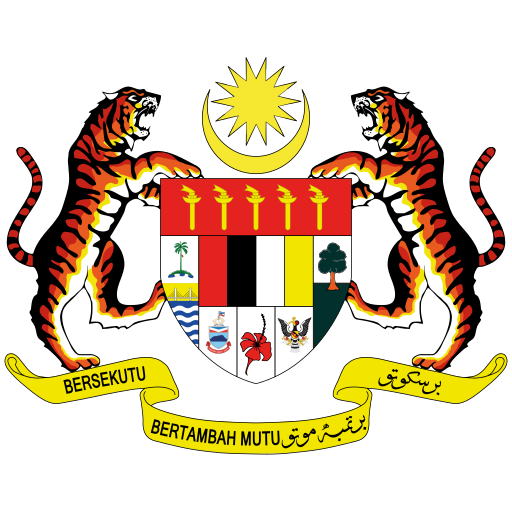HOLDING OUR GROUND: SOUTHEAST ASIA IN A FRACTURED WORLD
HOLDING OUR GROUND: SOUTHEAST ASIA IN A FRACTURED WORLD
SPEECH BY THE HONOURABLE DATO’ SERI ANWAR IBRAHIM PRIME MINISTER OF MALAYSIA AT THE SHANGRI-LA DIALOGUE 31 MAY 2025
SINGAPORE
This gathering has become an essential forum where ideas are tested, assumptions challenged, and common ground quietly built.
Today, I would like to speak about how Southeast Asia is holding its ground – through cooperation, collective resilience, and the steady exercise of our own agency.
One example is the Johor-Singapore Special Economic Zone, an economic partnership designed to boost investment, innovation and connectivity between Singapore and southern Malaysia. In a world increasingly shaped by fractures and fault lines, we aim to offer a different kind of border: one defined not by division, but by shared purpose.
ASEAN: Built to Endure, Poised to Evolve
If this Johor-Singapore Special Economic Zone is a glimpse of what cooperation can achieve at the bilateral level, then ASEAN is the wider canvas.
The 46th ASEAN Summit in Kuala Lumpur held last week was substantive and productive. We adopted the Kuala Lumpur Declaration on ASEAN 2045, a 20-year roadmap to knit our region closer together, with jobs, connectivity and sustainability at its core. This is the kind of groundwork on which lasting security is built.
We made the historic decision to admit Timor-Leste as ASEAN’s 11th member, with formal admission expected at the next Summit in October.
The situation in Myanmar remains grave, but we are not standing still. ASEAN does not seek to engineer outcomes in Myanmar. But we are equally clear that the Five-Point Consensus dictates that a resolution that excludes those most affected by this crisis will not endure. Myanmar’s nationhood must be forged through inclusion, not erasure.
Beyond our borders, ASEAN is widening its strategic aperture. The ASEAN-GCC Summit deepened ties with the Gulf. This week’s launch of the ASEAN-GCC-China trilateral initiative, unprecedented and momentous, reflects our intent to connect ASEAN’s energy and talent with the Gulf’s capital and China’s scale. New tools, like the ASEAN Geoeconomics Task Force, are helping us navigate external shocks with sharper coordination and foresight.
And while such headlines matter, the real strength lies in what happens beneath them. Or what happens within us as in what Tocqueville describes as “the habits of the heart”, rituals that helped to establish and sustain democratic institutions with a coherent moral ethos.
And that gives us “habits of cooperation” – trade facilitation, cybersecurity frameworks, cross-border data rules, cultural cooperation. They may not be as dramatic, but they are no less vital, for they give Southeast Asia greater impetus to act together. And the more we act together, the harder it becomes to be pulled apart by external gravity.
Preserving our autonomy is not about resisting others. It is about strengthening ourselves. This, in essence, is what ASEAN Centrality is about.
Economic Openness and Strategic Stability
That same spirit shaped the ASEAN leaders’ statement on global economic and trade uncertainty. We warned of the dangers of unilateral actions, retaliatory tariffs and the growing risk of global fragmentation. We
affirmed ASEAN’s commitment to an open, predictable and rules-based trading system – not because it is expedient, but because it is existential.
Southeast Asia is not new to globalisation. We are one of its original crossroads. From the trade routes of the Malaccan Sultanate, Majapahit empires, and the Kingdoms across Southeast Asia, to the data centres of today, our region has long depended on openness. – to goods, capital, ideas and people. This openness has anchored our prosperity, stabilised our politics and strengthened regional cohesion. What holds true for us holds true elsewhere: when trade flourishes, stability follows. When it falters, the consequences ripple far beyond any one region.
Economic openness is not just about creating prosperity and growth. It is a source of equilibrium, both between nations and within them, to deal with pressing issues that affect the people, such as poverty, social inequities, or even digital divide. Open markets create the kind of mutual exposure between nations that encourages caution, not confrontation.
And when this system is disrupted, markets lose their bearings. Investor confidence wavers while financial flows seize up. What began as a commercial rupture becomes a systemic shock. History reminds us that these shifts are rarely gradual.
This commitment reflects the realities we face every day – as open, export-driven economies deeply connected to global markets. For countries like ours, fragmented trade raises costs, lowers resilience and depresses investment. Currency volatility and investor flight do not
respect borders. And disruptions in energy, food or critical minerals cascade quickly through societies.
The point is not that globalisation has been perfect. It hasn’t. But it has created shared interests that restrain rash decisions. In today’s fractured landscape, that kind of restraint is more valuable than ever.
In Defence of Restraint
Ladies and gentlemen,
All this talk about trade does not mean we are oblivious to the hard security challenges facing our region. Voltaire famously observed that “optimism is the madness of insisting that all is well when we are miserable.” This is, undeniably, a sobering moment in history. The number of armed conflicts is now at its highest since the end of the Second World War, from the war in Ukraine and the genocide in Gaza, to civil strife in Myanmar, Sudan and the Sahel.
We must not allow selective outrage or strategic fatigue to dull our moral clarity. Indeed, the genocide in Gaza is a test of our collective conscience. The scale of devastation, the open defiance of humanitarian norms, and the paralysis of institutions meant to uphold them demand more than sympathy. They demand consistency and action.
The new orthodoxy affects not just how we view diplomacy, but how we structure security. If persuasion is dismissed as weakness, then exclusivity becomes strategy.
We do not object to like-minded partners talking amongst themselves. But coalitions that build walls instead of bridges, stoke arms competition, or undermine the legitimacy of multilateralism should give us pause. A stable region is not one braced for conflict, but one grounded in openness, transparency, and habit-forming cooperation.
Nevertheless, we understand that nations need a degree of control over their defence industries and critical infrastructure. We recognise that a measure of deterrence helps keep all parties honest. It is with that realism in mind that Malaysia adopts a posture of active non-alignment, to preserve our ability to act on our own terms. It is a deliberate way to remain outward-facing, connected, and in control of our strategic space.
The suggestion that if we do not align fully with one side, then we must have capitulated to the other, is untenable. Nowhere is this more evident than in the prevailing discourse on the South China Sea where the dispute is far too complex. Our objective is not achieved through escalation – nor by provoking others into disproportionate responses. It is best pursued through steady, principled diplomacy: quiet, where necessary, but always firm.
Malaysia remains deeply concerned about the potential for escalation among the claimants in the South China Sea. We have no interest in seeing tensions spiral into confrontation – least of all in waters so critical to our own security and prosperity. That is why we will continue to engage all parties calmly, directly and consistently. We will urge restraint, encourage dialogue, and work to preserve the stability on which this region depends. Above all, we remain steadfast in our principled insistence that all parties uphold the United Nations Convention on the Law of the Sea.
Preserving Strategic Autonomy
Ladies and gentlemen,
Malaysia does not believe in spheres of influence. History has shown that when major powers attempt to divide the world into exclusive zones of control, smaller nations are often left voiceless. Stability does not come from carving up the map, but from creating space for all to participate meaningfully in shaping the order we live in.
Our approach is one of active non-alignment. We will engage all who are willing – major powers and middle powers alike – not to set one against the other, but to maximise our own strategic space. Indeed, while we welcome a strong and enduring US presence in the region, towards fostering peace, we also value our vibrant and firm ties with China, and our robust partnerships across Asia, Europe and the Global South.
What Southeast Asia needs is a dynamic equilibrium that enables cooperation without coercion, and balance without bloc politics. For Malaysia, this is a deliberate and strategic posture: to help preserve an open region, to assert our sovereignty, and to make our own choices – on our own terms.
Thank you.







